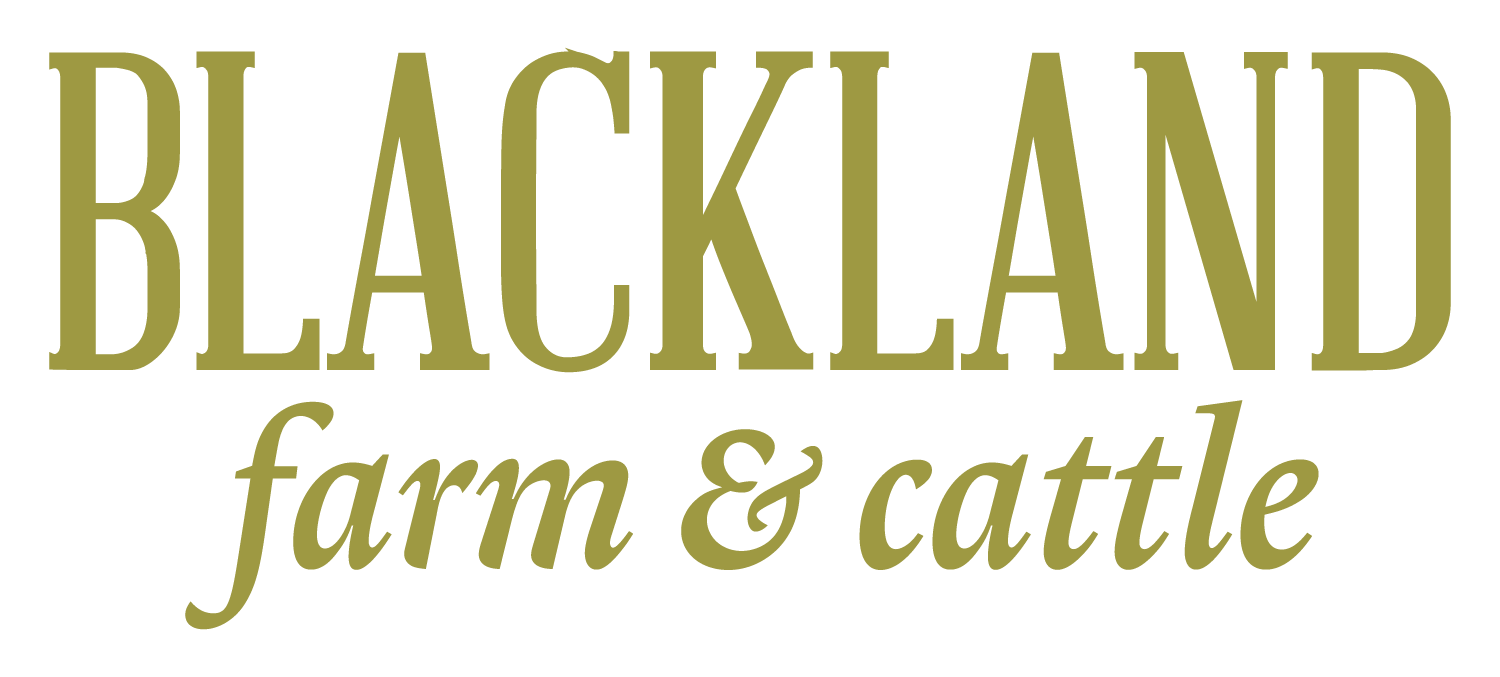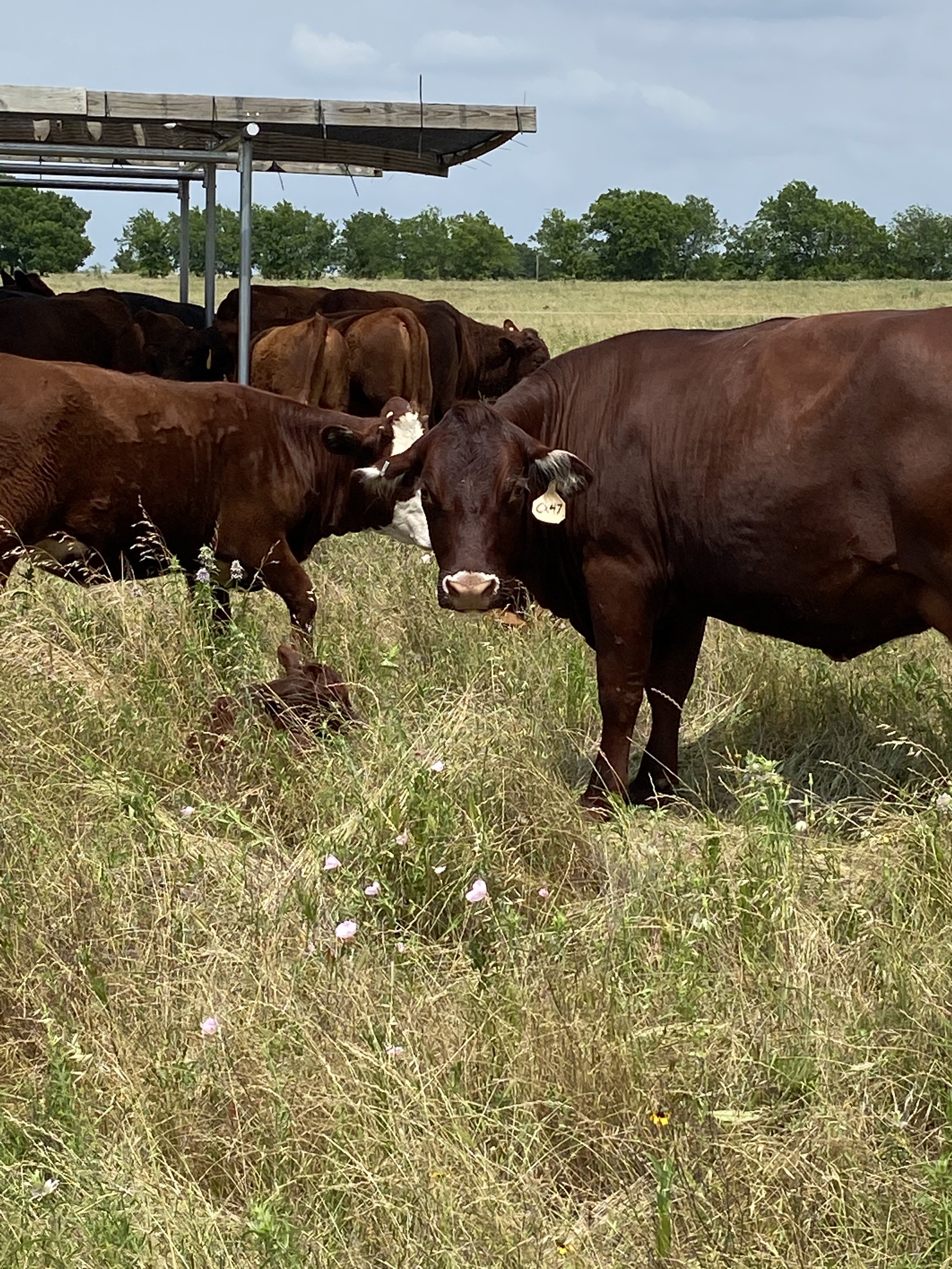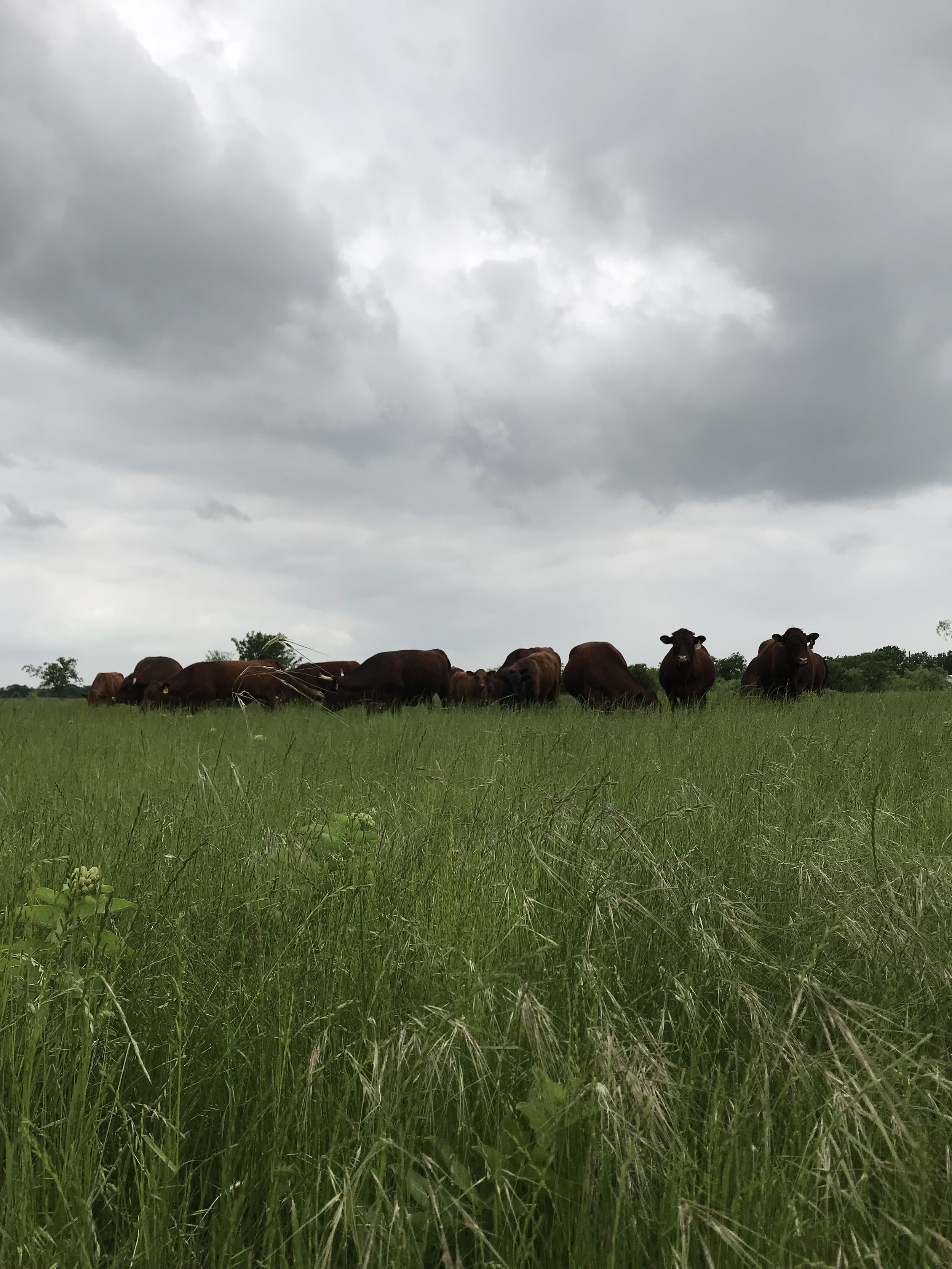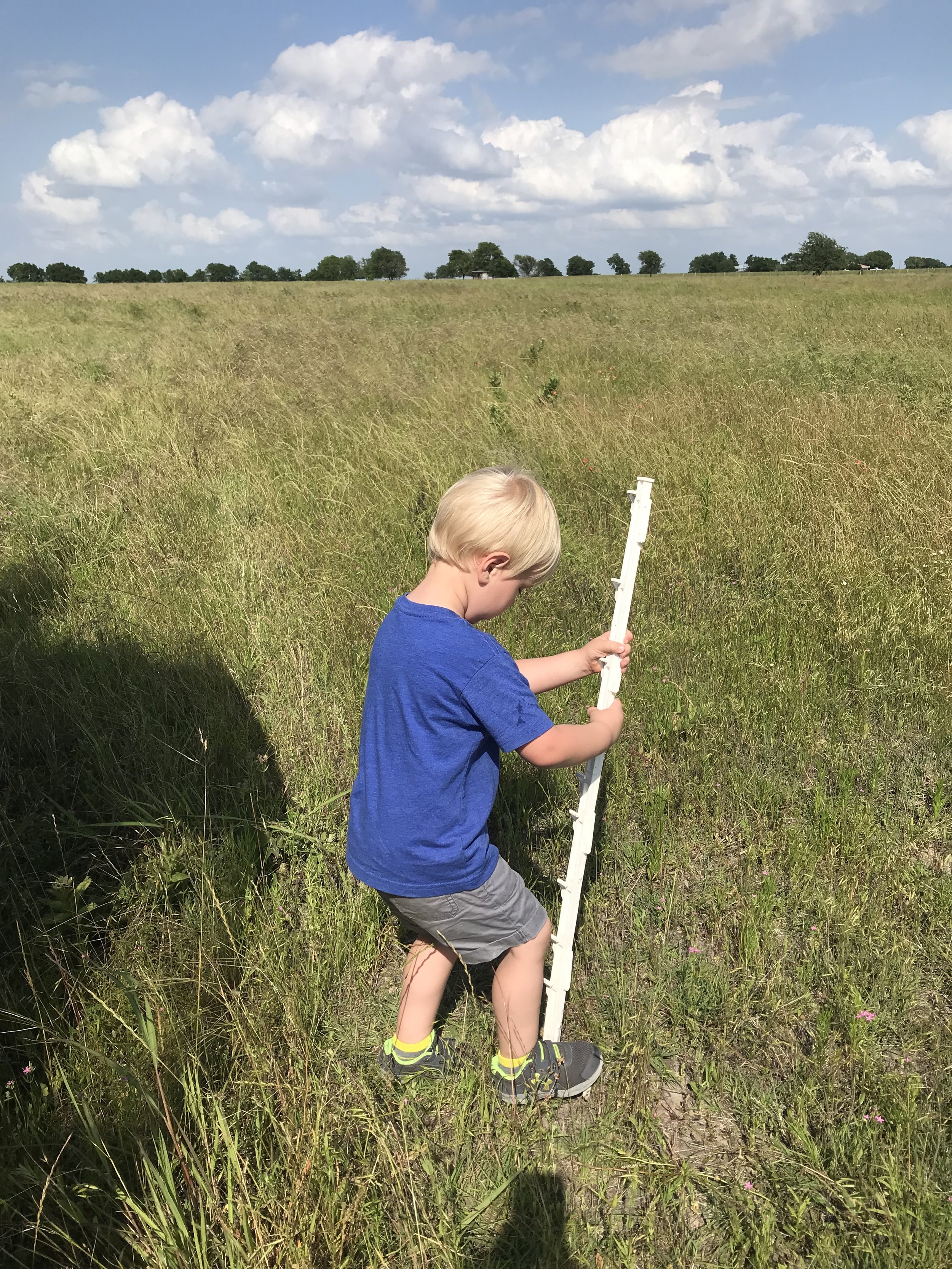Our 100% Grass-Fed Cattle Operation - FAQs
June 2021 edited to add: I initially wrote this blog during the height of the pandemic, and reference some of the unique challenges we all faced when our food supply chain was disrupted. For those of us in Texas, it was once again disrupted during the winter storms in February. It floors me to think of the challenges we have experienced and overcome together during the last year. I just want to thank all of you reading for your continued support of our farm and local, family farms like us!
Todd wanted everyone to get the inside scoop on how we manage our beef operation. We worked up this blog post together to provide you with information as you navigate buying beef from local producers! It’s longer than my usual posts, but now you all know how my conversations with Todd usually go!!
Closures in meat processing plants across the country have led to a decrease in availability of beef in grocery stores. Direct purchases from farms of all sizes and set-ups have surged, with a parallel surge in the use of the existing network of small processors that operate in rural areas. We have seen an increase in our reach as well, and we are so excited to see more people seeking out local grass-fed beef.
For those of you that are only familiar with purchasing meat from the grocery store, or even for those of you that have experience purchasing meat directly, we wanted to offer some advice to help you and your family make the best decision for you. Even if you aren’t buying from us – we want you to get exactly what you want and to be informed when you talk to farmers or butchers. You need to ask about what’s important to you!! We’ve gone ahead and answered some of the most common questions we get (especially as a producer that uses regenerative practices), and highlighted how our farm approaches each concern. We get LOTS of questions (and we love it!), so I’ve divided this information into 2 parts for you – questions about production and questions about processing. We will focus on production today!
A quick aside – you don’t have to buy in bulk from us! We offer meat by the cut and that’s how most of our customers purchase their meats. We deliver every Thursday throughout Riesel, Mart, Marlin, Hewitt, Woodway, Waco, China Spring, Bellmead, and Lacy-Lakeview. These questions will be useful regardless of whether you buy beef in bulk or by the cut.
What does grass-fed or grain-fed or pasture-raised actually mean?
The production claims on beef can vary widely and different producers have different definitions. You must ask questions and push for concrete answers. Grass-fed should mean 100% grass-fed and finished, but many producers use it to describe any animal that has eaten grass at some point in its life. Virtually all cattle eat grass during their lifetime! Grass-finished means that the animal was fed grass even at the end of its life up to the point of processing – and that means no range cubes and no protein tubs. Make sure if you want grass-fed beef you ensure the animal has been fed zero grain. Grain-fed simply means the animal has been fed grains, usually during the finishing stage. Pasture-raised means the animal should have never been in a feedlot or a confined feeding situation. The term pasture-raised does NOT mean the animal is grass-finished.
Blackland Farm & Cattle produces only 100% grass-fed and grass-finished beef. Our cattle are never fed grain and are always raised on pasture. We do not use protein tubs or liquid feed. Remember if the producer feeds any grain (even “just range cubes”), tubs, liquid feed, or anything that is not grass, then it is not 100% grass-fed.
What about antibiotics and artificial hormones?
Almost all producers include these items in their production. Detailed records and a willingness to answer questions about these things are key. Artificial hormones are very common in steers – be sure to ask. The biggest thing we don’t hear customers ask about is chemical, pour-on de-wormers. These are systemic insecticides that are poured on the animals back to kill internal parasites. The residues remain in the animal and in the pastures. Most cattle are treated once or twice a year.
Blackland Farm & Cattle NEVER uses antibiotics, artificial hormones, or chemical de-wormers. Further, we never apply synthetic fertilizers, insecticides, or herbicides to our pastures. We prioritize healthy pastures, clean water, and sustainable stocking rates to keep our cattle healthy. We have an intentional grazing plan that moves cattle daily to fresh pasture, and they always have access to fresh water, not dirty pond water.
What is the environmental impact of your beef?
Simply put, grain-fed beef (especially beef that is funneled through feed lots) is hard on the environment. Further, animals raised in continuous-graze pasture situations degrade the environment. If you are passionate about using the beef you consume to improve soil quality, air quality, and water quality, you should search out producers that use holistic, regenerative practices.
Blackland Farm & Cattle uses regenerative grazing practices to sequester carbon in the soil, increasing organic matter content in the soil. Increased organic matter allows the soil to hold more water, preventing damaging runoff and erosion. Our grazing methods stimulate grass growth rather than hinder it. Encouraging grass growth and sequestering carbon fight climate change. You may have also heard that cattle emit methane, contributing to global warming. While they do emit methane, cattle raised in a rotational grazing system ALSO stimulate the existence of methanotrophic bacteria. These amazing bacteria actually consume more methane than the cattle produce!
What is your finishing protocol?
If you ask this question and the producer blows it off or does not offer a firm, straight-forward answer, run away as fast as you can. Cattle randomly pulled out of the field with little or no consideration given to its readiness for harvest will likely result in an end product that you won’t enjoy eating. This is true for both grain-fed and grass-fed/finished beef – but especially grass-fed. Inappropriately finished grass-fed beef results in unpalatable off-flavors and an inferior eating experience.
Blackland Farm & Cattle has selected cattle genetics specifically for grass-fed, grass-finished production. We closely monitor our calves to ensure they develop appropriately. We are patient and wait for the animals to fully mature and develop before harvest. We generally harvest beef in the early summer. We want to ensure that the animal has received several months of higher quality forage before harvest, helping develop intramuscular fat and tenderness. Forage consideration is especially important with grass-finished cattle. Ask and we will tell you anything you want to know about a specific animal!
Even the kids enjoy setting up the electric fence and helping us move the cattle!
Do you have any other questions? Send us an email!



